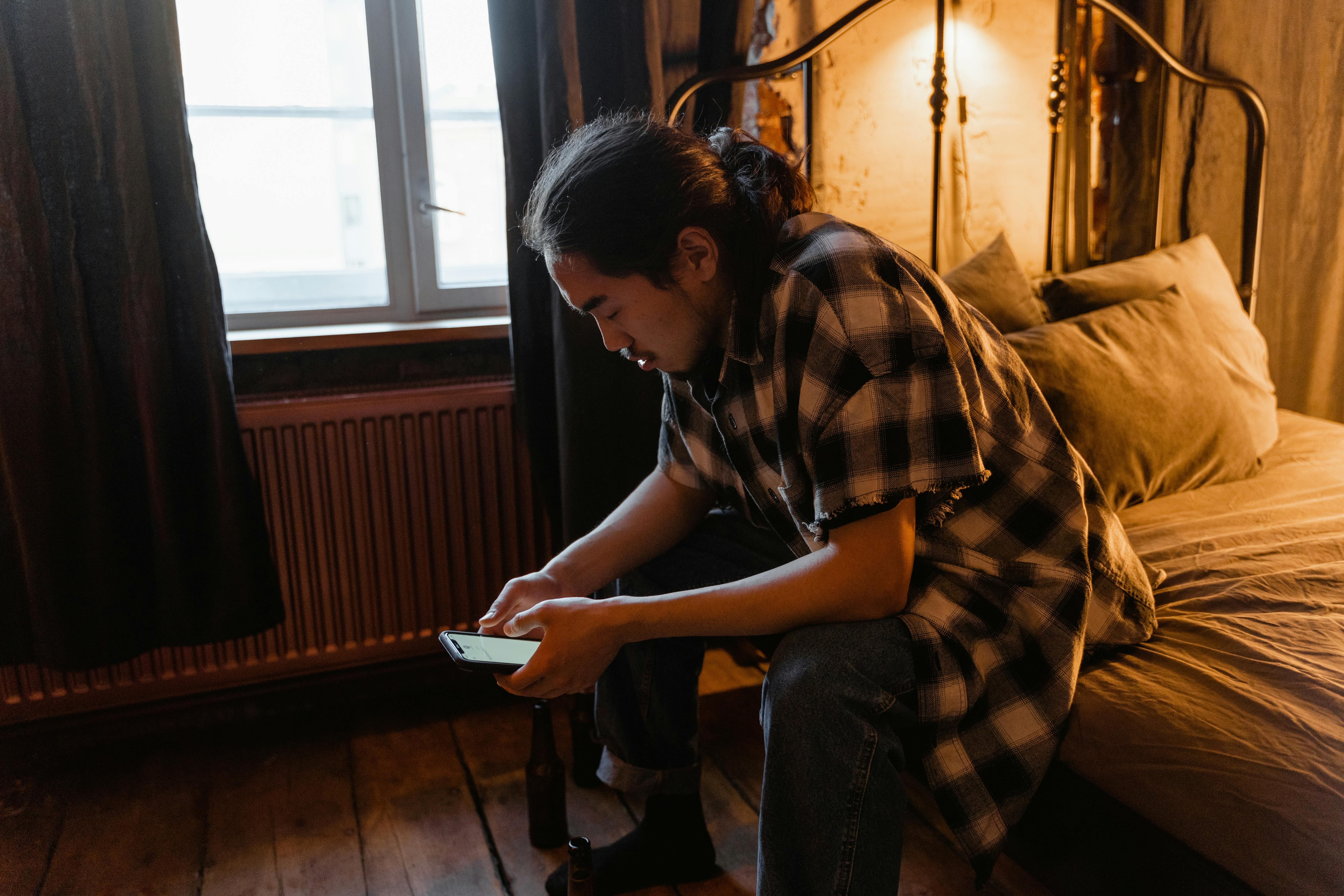Social Media Addiction
Social media addiction is the excessive use of social media platforms to the point where it starts disrupt your everyday life, responsibilities, and overall well-being.
It’s easy to talk about popular kinds of addiction, but excessive use of social media that leads to dependency is also a form of addiction, one where you lose control over how you use these platforms.
According to DataReportal's "Digital 2025: Global Overview Report," there are 5.24 billion active social media users worldwide, representing 63.9% of the global population.
Additionally, the report notes that the typical social media user spends approximately 2 hours and 21 minutes per day on platforms like WhatsApp, Facebook, Twitter, and TikTok.
We are constantly scrolling through social media, but could our favorite platforms actually be hurting our mental health?
Although social media connects us, raises awareness, helps us manage our brands and businesses, and builds relationships, it also has a darker side. This is something most people know deep down but rarely talk about, because the pros seem to outweigh the cons.
While these platforms help us connect and stay informed, their constant presence in our lives could be silently harming our mental health.
Social media and mental health
Studies show that people who spend more than many hours per day on social media are at a higher risk of experiencing mental health issues, especially among adolescents.
Constant exposure to curated content, unrealistic standards, high expectations, and peer pressure can negatively affect self-esteem and mental well-being.
Here’s what this can do to you:
1. Sense of Inadequacy
You start feeling like you’re not enough. Your own wins seem small compared to what you see online, making you think you aren’t doing well enough.

2. Self-doubt
You begin to question your journey. You start doubting your potential and disbelieving your abilities.
3. Loneliness
Seeing people having fun and enjoying life through beautiful pictures and videos can make you feel left out and lonely.
4. Fear of Missing Out (FOMO)
The fear that everyone is living their best life while you’re missing out can lead to anxiety and sadness.
These effects often creep in quietly. You might not notice them at first, but over time, they chip away at your mental well-being.
Cyberbullying and Online Harassment
Social media can be a breeding ground for toxic behavior like cyberbullying and harassment. Sadly, the rate at which people engage in these harmful acts is increasing. The impact? Damaging and sometimes serious mental health consequences.
One major factor is the anonymity of the internet, which makes it easier for people to drop negative comments and engage in harassment without accountability.
What Can You Do to Protect Your Mental Health?
Technology is here to stay. New apps and platforms will continue to evolve. There’s no denying that we need these tools, but we must learn to balance our use to protect our mental well-being.
1. Limit Social Media Use
This might feel like an impossible task for some. It can even feel like you’re being asked to "stop living," because of how addictive it is. But we’re not saying you should completely leave social media. Instead, substitute some of the time you would spend scrolling with other productive activities.
2. Curate Your Feed
Be mindful of the content you take in. If you notice that staying on certain accounts constantly leaves you feeling worthless or sends you into days of feeling low, don’t hesitate to unfollow or mute them.
Follow accounts that inspire, educate, and uplift your spirits. Remember, you have the power to shape your online experience.
3. Turn Off Notifications
Those constant notifications can create a sense of urgency, making it hard to look away from your screen. By turning them off, you can reclaim your time and focus, which can help ease anxiety and minimize distractions.

4. Practice Mindfulness
Take a moment to notice how you feel while using social media. If you start to feel anxious, inadequate, or irritated, pause and reflect on it. Practicing mindfulness can help you become more aware of your habits and emotional triggers.
5. Set Time Limits with Apps
Most smartphones and apps come with handy tools to track and limit your screen time. Establishing healthy boundaries for your daily social media use can help prevent overindulgence.
6. Engage in Offline Activities
Make it a priority to engage in-person connections and in real-life interactions.
Make sure to fill your time with offline hobbies like reading, playing sports, creating art, or enjoying moments with family and friends. These activities provide a sense of balance and remind you that there’s a whole world beyond the screen.
8. Take a Social Media Break
Sometimes, stepping away for a short period even just a few days can make a big difference. A social media break helps clear your mind from the noise and comparison traps. It gives you breathing space to refocus on your personal goals without the pressure of online updates.
9. Seek Professional Help if Needed
If you find yourself struggling with persistent feelings of anxiety, depression, or hopelessness tied to social media, don’t hesitate to reach out to a mental health professional. Therapy can offer valuable coping strategies and emotional support.
Conclusion
Social media sure has its benefits, but it’s important to use it wisely. Pay attention to how it makes you feel, take breaks when you need to, and focus on what truly lifts you up.
At the end of the day, you’re the one in charge of your online experience.
To find the nearest physical and online therapist near you;
click https://tranqbay.health/ to get started.
We’ve also included a step-by-step guide to assist you in booking your first session.
https://tranqbay.health/blog/general/speak-with-an-online-therapist-a-step-by-step-guide
